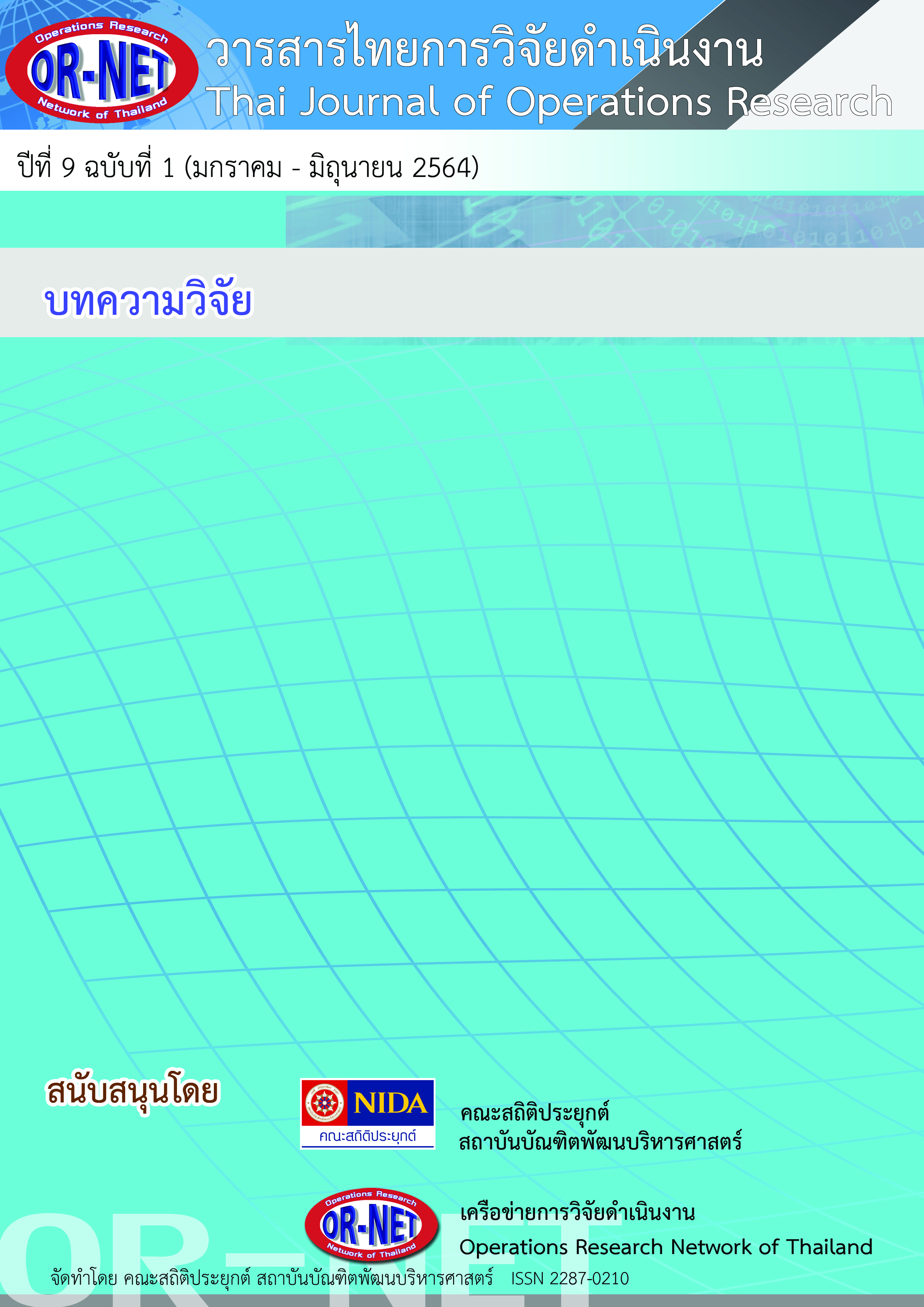Parallel Machine Scheduling in the Testing Process of Integrated Circuit
Keywords:
Scheduling, Parallel Machine, Mathematical Model, HeuristicAbstract
This research studied the Parallel Machine Scheduling in the Testing Process of Integrated Circuit to minimize the number of machines in process and improved machine utilization. Two research methodology had been applied in this research. The first method is to create the production scheduling by Mathematical Model and using Solver program in Microsoft Excel to find out the optimal solution. The second one is created by Hybrid Heuristic, EDD+LPT rules. The solution obtained from the Mathematical Model and Hybrid Heuristic is compared the efficacy index with current scheduling in order to reduce total tardiness, total Earliness and Total cost system. From the result of 575 jobs, 4 weeks. The Mathematical Model method can provide the good solution with shorter amount of time than using Hybrid Heuristic. The efficacy index of total cost system is reduced around 13.43% and total tardiness/earliness are reduced 47.24%, 73% respectively.
References
[2] พงษ์ธาดา คุรุกิจกำจร, “การเปรียบเทียบการจัดตารางการผลิตเครื่องจักรแบบขนานที่ไม่สัมพันธ์กันโดยใช้โปรแกรมการจัดการผลิต และการใช้แบบจำลองมอบหมายงาน,” สารนิพนธ์วิศวกรรมศาสตรมหาบัณฑิต สาขาวิชาการจัดการวิศวกรรม มหาวิทยาลัยศิลปากร , นครปฐม, 2556.
[3] ยอดดวงใจ นาคปฐม, “การจัดตารางการผลิตแบบตามสั่ง สำหรับอุตสาหกรรมสิ่งทอ,” วิทยานิพนธ์วิศวกรรมศาสตรมหาบัณฑิต สาขาวิชาการจัดการวิศวกรรม มหาวิทยาลัยศิลปากร , นครปฐม, 2555.
[4] อณจ ชัยมณี, “การจัดตารางการผลิตแบบไหลเลื่อนโดยมีกำหนดส่งงานเป็นช่วงเวลาภายใต้นโยบายการผลิตแบบทันเวลาพอดี,” วิทยานิพนธ์วิศวกรรมศาสตรดุษฎีบัณฑิต สาขาวิชาวิศวกรรมอุตสาหการ มหาวิทยาลัยเกษตรศาสตร์, กรุงเทพฯ, 2560.
[5] Chen, J.F, “Scheduling on unrelated parallel machines with sequence- and machine-dependent setup times and due-date constraints,” The International Journal of Advanced Manufacturing Technology, vol. 44, pp. 1204–1212, 2009.
[6] Dong-Won Kim, Dong-Gil Na and F. Frank Chen, “Unrelated parallel machine scheduling with setup times and a total weighted tardiness objective,” Robotics and Computer Integrated Manufacturing, vol. 19, pp. 173–181, 2003.
[7] L. sufen, Z. yunlong and L. xiaoying, “Earliness/Tardiness Flow-shop scheduling under uncertainty,” 17th IEEE International Conference on Tools with Artificial Intelligence, ICTAI 2005, Hong Kong - China, 14-16 Nov. 2005, pp. 415-422.




